1/5




160mu Benzylpenicillin Potassium for Injection -Benzylpenicillin
$1.20 / Boxes
- FOB Price:
- Negotiable | Get Latest Price
- Order Quantity:
- 1 Set / Sets
- Supply Ability:
- 1000 Set / Sets per Month
- Port:
- shanghai
- Payment Terms:
- T/T L/C D/P D/A Credit Card PayPal Cash Escrow Other
- Delivery Detail:
- 5 days
Hot in store
Product Details
Product Name: 160mu Benzylpenicillin Potassium for Injection -Benzylpenicillin Model NO.: Powder injection Veterinary Reg. No.: Veterinary Medicine (2015)220241253 Storage Method: Prevent Exceeding Quality Guarantee Period Pharmacodynamic Influential Factors: Animal Species Type: The First Class Component: Microorganism Varieties: General Disease Prevention Medicine Trademark: dingjian Transport Package: 1.6mu * 50PCS * 20 Boxes Specification: 1.0g Origin: China Product Description Instructions of Benzylpenicillin Potassium for InjectionVeterinary prescription drugs[Veterinary Drug Name]Generic name: Benzylpenicillin Potassium for InjectionTrade name: AnqingEnglish name:Benzylpenicillin Potassium for InjectionChinese pinyin name:Zhusheyong Qingmeisujia[Major Composition]Benzylpenicillin Potassium[Description]White crystalline powder[Pharmacological Actions] Pharmacology Benzylpenicillin is abactericidal antibiotic with astrong antibacterial activity and its antibacterial mechanism is mainly to inhibit the synthesis of cell wall mucopeptide of bacteria. The growing sensitive bacteria split actively and the cell wall is in biosynthesis phase. The disturbance of mucopeptide synthesis makes it fail to form the cell wall in the presence of benzylpenicillin and causes cell membrane rupture and death under the osmotic pressure. The non-growing and breeding bacteria are not required to synthesize the cell wall at this time, thus benzylpenicillin has no bactericidal effect, so it should be avoided to clinically combine this kind of "bactericide for breeding period" like benzylpenicillin with the "fast-effect bacteriostat" inhibiting the growth and breeding of bacteria (e.g. florfenicol, tetracyclines and erythromycin etc.). The latter will inhibit the growth of the bacteria so that benzylpenicillin does not function.Benzylpenicillin is anarrow-spectrum antibiotic, which mainly works for various gram-positive bacteria and few gram-negative cocci. The major sensitive bacteria include staphylococcus, streptococcus, bacillus rhusiopathiasuis, corynebacteria, clostridium tetani, actinomycete, bacillus anthracis and spirochete etc. Benzylpenicillin is insensitive to mycobacteria, mycoplasma, chlamydia, rickettsia, nocardiosis, fungus and virus.Pharmacokinetics After oral administration, benzylpenicillin is easy to hydrolyze and difficult to absorb in the condition of stomach acid, with a15-30% bioavailability on an empty stomach and less absorption on afull stomach, and the common dosage cannot reach the effective plasma concentration.Benzylpenicillinpotassium saltis absorbed rapidly after intramuscular injection and reaches the plasma peak concentration in 15-30min. The plasma concentration maintains above 0.5μg/ml for 6-7h after intramuscular injection. Benzylpenicillin can be widely distributed in all tissues and moved into the fetal circulation, with higher concentration in kidney, liver, lung, muscle, small intestine and spleen and lower one in skeleton, saliva and milk. It is difficult to go into the cerebrospinal fluid and its concentration in normal cerebrospinal fluid is only 1-3% of plasma concentration, whereas the concentration in cerebrospinal fluid is up to 5-30% of plasma concentration when inflammation. The concentration of benzylpenicillin in milk can be 5-20% of plasma concentration. Benzylpenicillin of breast injection can be massively absorbed in the first few hours, but the milk can maintain the inhibitory concentration for aconsiderable time. It is reported that in case of injecting 0.1MU benzylpenicillin aqueous solution in the breast, it may maintain at 4.26u/ml in the milk for 24h.Benzylpenicillin is marginally metabolized in the liver and mostly excreted without metabolism. Approximately 50-75% of benzylpenicillin is excreted from kidney under the condition of normal renal function, wherein 90% is secreted via kidney tubules. And it will be rapidly eliminated in the body due to its quick excretion. The plasma protein binding rate of benzylpenicillin is approximately 50%. Due to short half-life and minor differences among species, the half-life of all livestock is approximately 0.5-1.2h. The apparent volume of distribution is small, generally 0.2-0.3L/kg, thus, the plasma concentration is high and the tissue concentration is low.[Indications]It is mainly used for the treatment of both gram-positive bacterial infections and infections such as actinomycete and leptospira,e.g. swine erysipelas, emphysematous gangrene, malignant edema, actinomycosis, strangles, necrobacillosis, leptospirosis and mastitis, skin soft tissue infection, arthritis, hysteritis, pyelonephritis, pneumonia, sepsis and tetanus. It is appropriate to combine with tetanus antitoxin for the treatment of tetanus.[Dosage and Administration]Intramuscular injection single dosage per 1kg weight 10,000-20,000 units for horse and cattle 20,000-30,000 units for sheep, swine, foal and calf 30,000-40,000 units for canine and cat 50,000 units for poultry 2-3 times aday for 2-3 consecutive daysAdd appropriate sterile water for injection to dissolve before use.[Adverse reactions](1)The major adverse reaction is allergy, which may occur in most livestock, with alow occurrence rate. Local reactions represent edema and pain of injection site, general reactions are urticaria and rash, and severe cases may lead to shock or death.(2)For some animals, benzylpenicillin may induce superinfection of gastrointestinal tract.[Precautions](1) Benzylpenicillin potassium is soluble in water, the aqueous solution is unstable and easy to hydrolyze, and its hydrolysis rate will speed up with the increase of temperature, thus the injection shall be prepared before use. If it is necessary to store the injection, it shall be placed in the refrigerator (2-8ºC) for 7days, and it can be stored at room temperature for only 24h.(2)The interaction and incompatibility with other drugs should be understood so as not to affect the efficacy of penicillin(2) It is necessary to understand the interactions and incompatibility with other drugs so as not to affect the efficacy of benzylpenicillin .(3) 100 MU (0.625g) of benzylpenicillin potassium contains 0.065g of potassium ion, so large-dose injection may cause hyperkalemia. It may cause adverse effects to the livestock with renal hypofunction or cardiac insufficiency.[Withdrawal Time] Cattle, sheep, swine and poultry:0 day; cattle and sheep: 72h of milk withdrawal time[Specification]Calculate with C16H17KN2O4S 1.0g (160MU)[Package] 1.6MU ×50pcs ×20 boxes
Contact with Supplier
Recommend product
-

Stripped Soft Goose Fe
$3.00 -
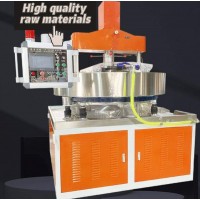
plastic ball grinding
$30000.00 -
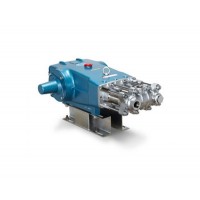
CAT piston pump 281
$4000.00 -
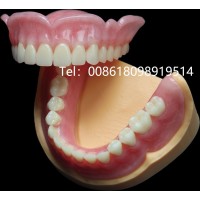
Droichead Zirconia Plu
$10.00 -

E.max crown, Veneer, I
Inquiry -
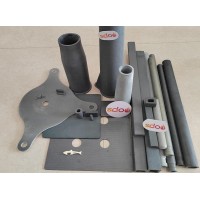
ReSiC Beams/plates/bur
$16.00 -

RSiC Slabs Boards Tile
$15.00 -
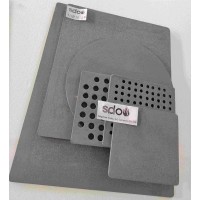
RSiC Batts as Kiln she
$15.00 -
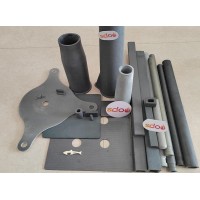
RSiC Tube by recrystal
$10.00 -

RSiC Kiln Furniture (B
$16.00 -

RSiC Burner Nozzle Fla
$18.00 -

RSiC Beam Support Pill
$16.00 -

RSiC plate Slab Board
$15.00 -

NSiC Tube Pipes by Nit
Inquiry -

used excavator hudraul
$16600.00 -
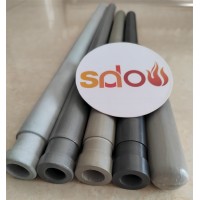
NSiC Thermocouple Prot
Inquiry -

Stalk Riser Tube for L
Inquiry -

NSiC Ceramic Heater Pr
Inquiry -

RSiC NSiC Ceramic Kiln
Inquiry -

used excavator hudraul
$11500.00
Product parameters
closure
This shop is operated by agent
- Set up shop
- Authorized by Manufacturers & Suppliers online marketplace B2B platform GongWong.com, can provide agency service
- Service Introduction
- Authorized product, Internet cloud promotion service integrating certification promotion and procurement inquiry
- Intelligent website construction
- PC terminal + mobile terminal, create a cost-effective corporate website!
closure


